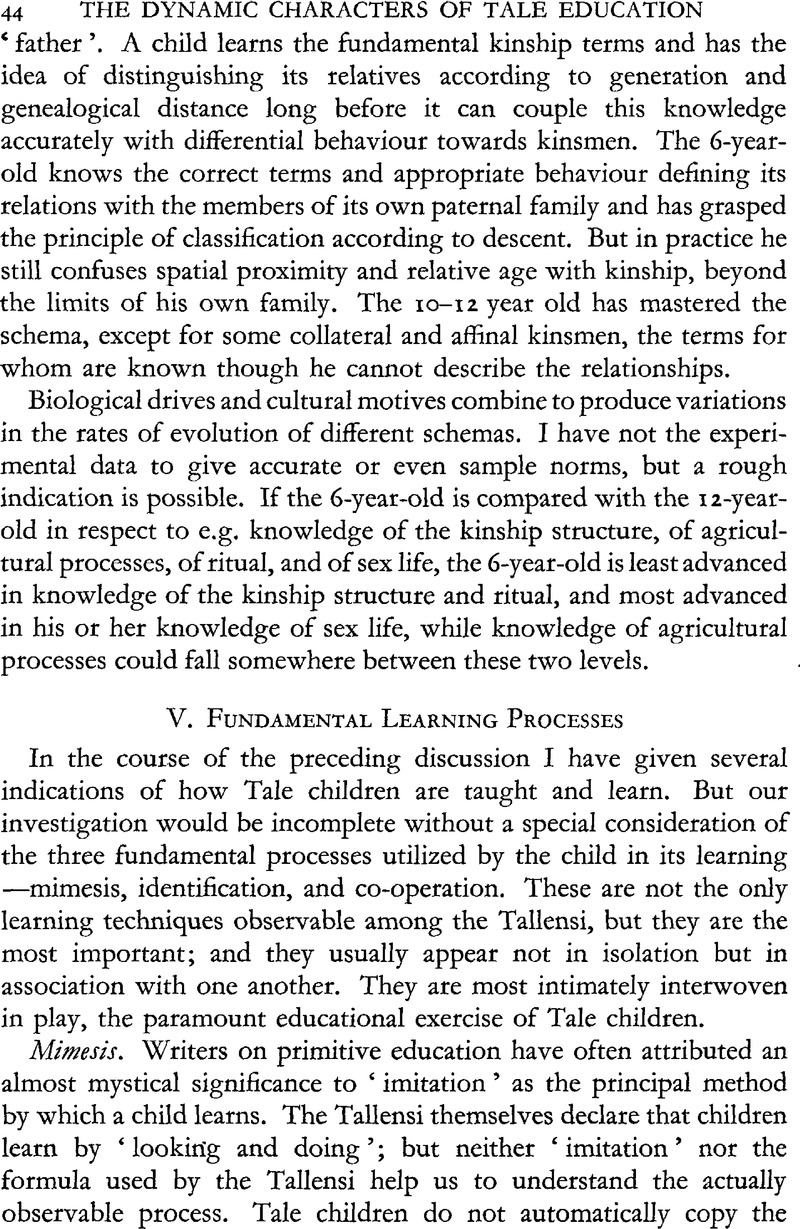No CrossRef data available.
Published online by Cambridge University Press: 21 August 2012

page 48 note 1 This exposition of identification is over-simplified in order not to burden the general argument. In Taleland, as elsewhere, it is not the sole determinant of character formation. It has been stressed here in order to underline its educational importance.
page 49 note 1 In this respect Tale children resemble our own children; cf. S. , Isaacs, Intellectual Growth in Young Children, pp. 99–102Google Scholar. She sums up: ‘Imaginative play builds a bridge by which the child can pass from the symbolic values of things to active inquiry into their real construction and real way of working…. In his imaginative play the child recreates selectively those elements in past situations which can embody bis emotional and intellectual need of the present, and he adapts the details moment by moment to the present situation. …’ Cf. also the same author's Social Development in Young Children, p. 425, ‘Play … is supremely the activity which brings him [the child] psychic equilibrium in the early years.’
page 53 note 1 Nevertheless, this sexual dichotomy is not so absolute as to prohibit a girl or a woman from stepping into a breach if there is no male available for a man's task; and men often undertake women's work in an emergency.
page 56 note 1 See my paper on ‘Kinship, Incest and Exogamy’, loc. cit.